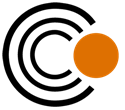 Course Snapshot for SCI105 - Science in Society
Course Snapshot for SCI105 - Science in Society
The information listed below is subject to change. Please review the course syllabus within your online course at the start of class.
Course Competencies
- Apply the scientific method to questions of interest in the relationship between science and modern society.
- Demonstrate understanding of the basic scientific principles involved in social issues relating to science.
- Recognize how science affects people’s daily lives, both positively and negatively.
- Explain the importance of personal involvement and responsibility in science related issues.
- Apply critical thinking skills to evaluate the validity of discussions of science in politics, in the media and on the internet.
- Research the scientific basis of modern issues using a variety of resources, both electronic and traditional.
- Present the results of research on scientific issues in presentations, discussions or debates.
- Use scientific vocabulary in discussing issues relating to science and society.
- Develop well-informed opinions based on sound research and critical thinking.
- Communicate both scientific concepts and informed opinions on scientific issues both verbally and in written communication.
- Present scientific research and evaluation of information in written form with appropriate citations.
Module Outcomes Mapped to Competencies
| Outcomes | Competencies | |
|---|---|---|
| 1 | Describe what science and society is and their relationship. | III |
| 2 | Explain the steps of the scientific method. | II, VIII |
| 3 | Identify how the scientific method can be used on a daily basis. | I, III |
| 4 | Identify the scientific theory. | II, VIII |
| 5 | Differentiate between credible and non-credible resources. | V, VI |
| 6 | Identify current issues in science and society. | VI |
| 7 | Describe how science may be affecting society or vice versa. | III, VI, VII, VIII, IX, X, XI |
| Outcomes | Competencies | |
|---|---|---|
| 1 | Research and describe how computers and the internet changed human interaction. | III, VI, VII |
| 2 | Determine the positives and negative impacts of technology and on human interaction. | III, IX , X, XI |
| 3 | Describe the positive and negative impacts of technology on society. | III, VI, VII, IX, X, XI |
| 4 | Analyze how diseases are researched and their impacts on society. | I, II, II, VI, VII |
| 5 | Describe how personal involvement in science effects personal health on a daily basis. | III, IV |
| 6 | Describe how the technological advances in medicine have impacted society. | III, VI, VII, IX |
| 7 | Determine the positive and negative impacts of GMOs on health and society. | III, VI, VIII, IX |
| Outcomes | Competencies | |
|---|---|---|
| 1 | Explain what biodiversity is. | VI, VII, VIII |
| 2 | Identify the 3 pillars of sustainability. | VIII |
| 3 | Describe the impact of personal involvement on climate change and how climate change impacts society. | II, VI, VII, VIII, IX, X, XI |
| 4 | Explain what population growth is. | VI, VII, VIII |
| 5 | Describe the impact of population growth on society. | III, VI , VII, VIII, IX, X, XI |
| 6 | Explain what ecosystem services are. | II, IX, X |
| 7 | Describe the elements that will need to be addressed to achieve sustainability. | III, V, VIII, IX |
| Outcomes | Competencies | |
|---|---|---|
| 1 | Identify how science programs are funded. | III, V, VI, VII |
| 2 | Describe the role of science in politics | V, VI, VII |
| 3 | Determine the impacts politics has on science | V, IX, X, XI |
| 4 | Determine the value of investing into science | III, IV, IX, X, XI |
| 5 | Apply critical thinking skills to problems of science and society. | V |
| Outcomes | Competencies | |
|---|---|---|
| 1 | Predict how science will impact the growth of society. | III, IX, X, XI |
| 2 | Determine if science is beneficial to society's future. | III, VI, VII |
| 3 | Explain how to use the scientific method in daily life | I, II, III |